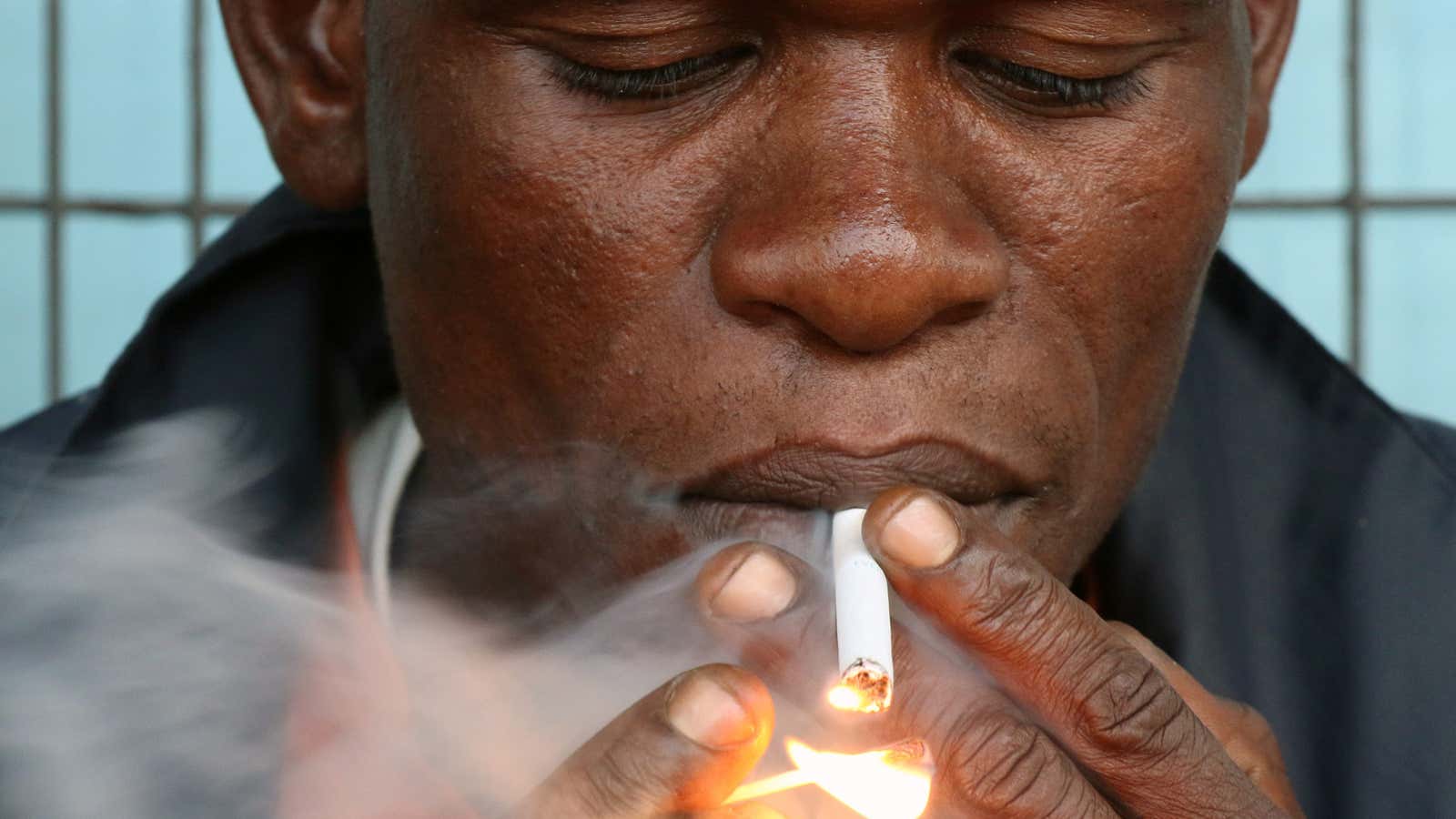Big Tobacco’s fastest growing markets are in Africa and the Eastern Mediterranean where regulations are lax and populations are growing, according to the latest edition of the Tobacco Atlas.
Smoking has declined in high-income countries, which the report ascribes to increased regulation, monitoring, and taxation.
But in countries with less stringent monitoring and regulation, tobacco consumption is increasing. In sub-Saharan Africa, consumption increased by 52% between 1980 and 2016, or 164 billion cigarettes to 250 billion. Lesotho has seen a significant spike in smoking from 15% of its population in 2004 to 54% in 2015. The authors attribute this to aggressive marketing by tobacco companies.
“Low- and middle-income countries represent over 80% of tobacco users and tobacco-related deaths, placing an increased share of tobacco-related costs on those who can least afford it,” said the report authors in a statement. The anti-tobacco activists, from the American Cancer Society and Vital Strategies, said that if African governments do not intervene,” a growing proportion of that burden will fall on countries across Africa in the future”.
Smoking is the leading cause of preventable death, and tobacco use kills about six million people worldwide annually. British American Tobacco estimates that the global tobacco market is worth $770 billion, with cigarettes accounting for $700 billion of that.
China remains the largest consumer of tobacco products, although the number is declining.
Michael Bloomberg, former New York mayor and a strong anti-tobacco advocate who opened the conference, argued for increased taxation. “Raising taxes on tobacco is the most effective way to drive down smoking rates, particularly among young people,” he said. “It is also the least widespread of all the proven tobacco control policies.”
However, Imperial Tobacco Group, the world’s largest tobacco company, denied that it was targeting African countries. “This is a myth perpetrated by anti-tobacco lobbyists,” said Simon Evans, group media relations manager for Imperial Brands. “We sell our brands in markets where there’s a legitimate and existing demand for tobacco and take the same responsible approach in, for example, in Africa and Asia as we do in any Western territory.”
He said that the company was also increasingly focused on next generation products, such as e-cigarettes.
